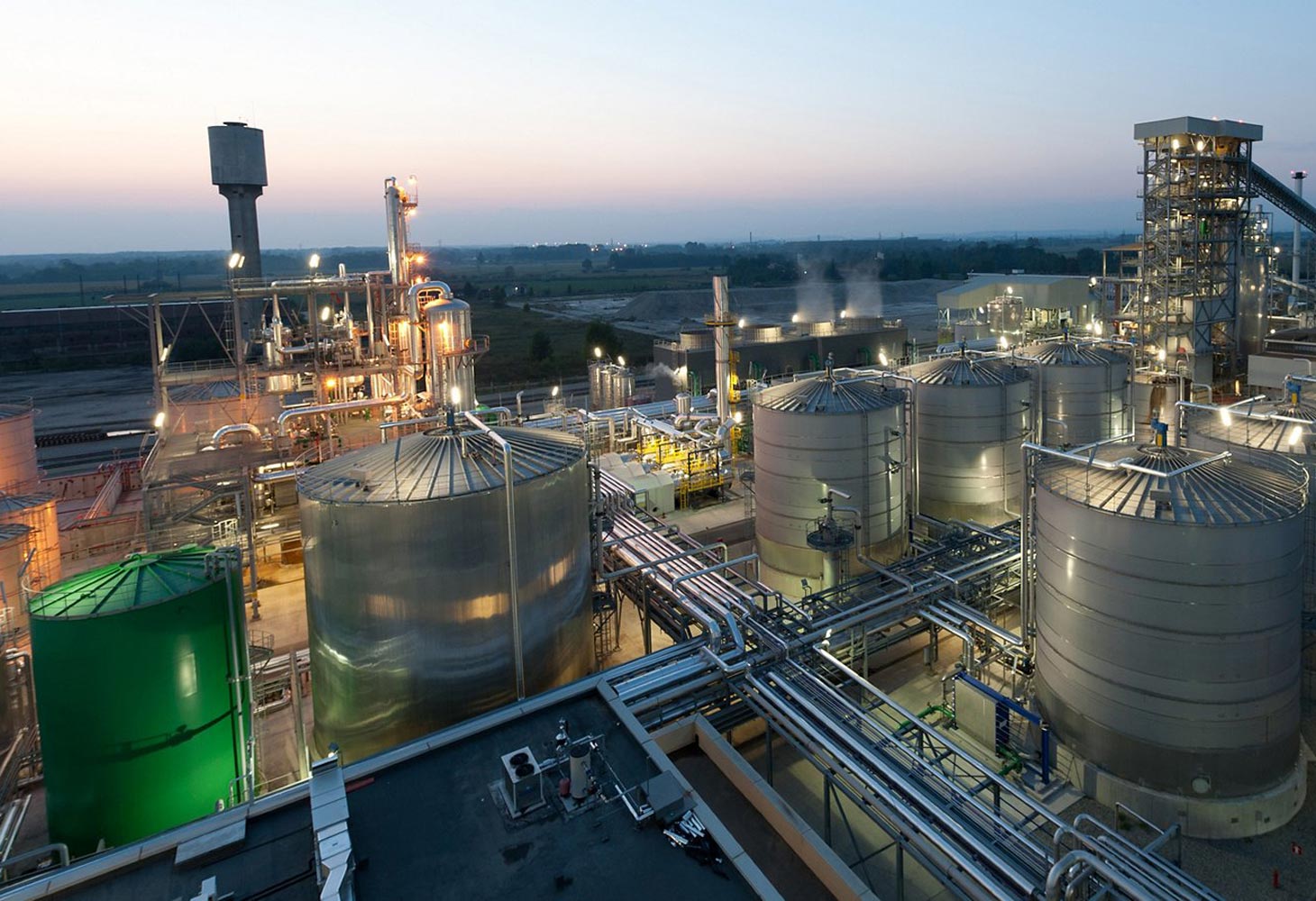
Versalis starts producing advanced bioethanol in Crescentino
Versalis, Eni’s chemical company, has begun the production of bioethanol from lignocellulosic biomass at Crescentino, Vercelli, Italy.
“Starting with the industrial production of advanced bioethanol using Proesa® technology is an important step for Crescentino, a one-of-a-kind plant that further strengthens our strategy to develop chemicals using renewable energy to improve sustainable mobility, in line with Eni’s energy transition strategy,” said Adriano Alfani, CEO of Versalis.
The plant, which was acquired in 2018, has been overhauled thanks to major investments and has started the production of advanced bioethanol, in compliance with the European legislation for the development of renewable energy RED II, as it is derived from raw materials that do not interfere with the food chain. The bioethanol, produced using Proesa® technology, one of the world’s most innovative industrial-scale biomass chemistry technologies, is ISCC-EU certified and will be used to formulate gasoline with a renewable component.
The plant is capable of processing 200,000 tonnes of biomass per year, with a maximum production capacity of approximately 25,000 tonnes of bioethanol per year. Following an initial test production run in recent weeks, the plant is now working at a progressive speed in order to fine-tune processes. Since July 2020, Crescentino has also been producing Invix® hand and surface disinfectant, a “medical device” made using bio-based ethanol as an active ingredient.
The Versalis plant at Crescentino is an example of sustainable initiative and circularity. Its energy supply is self-sustaining due to the production of renewable electricity and steam from the thermoelectric power plant, which is fed with short supply chain biomass and the lignin co-produced by the process. A complex water treatment plant also enables the production of biogas, which in turn is used to produce steam. The plant is also able to recycle the water used, thus drastically reducing water consumption.













